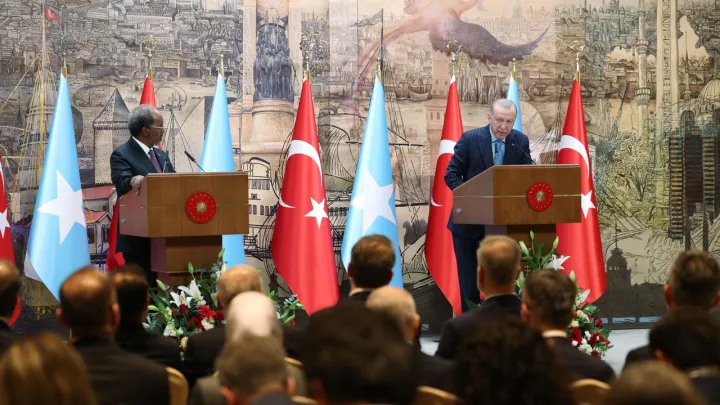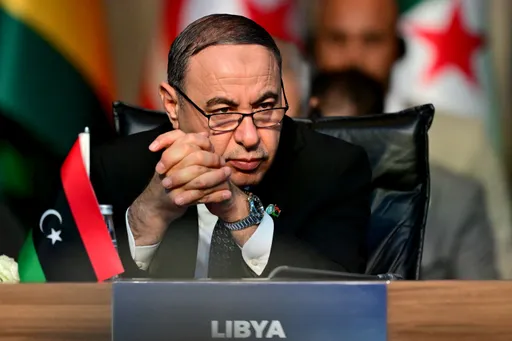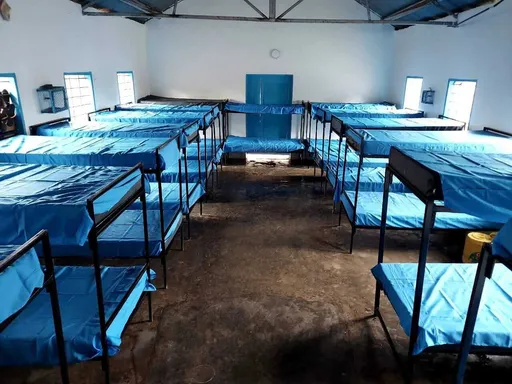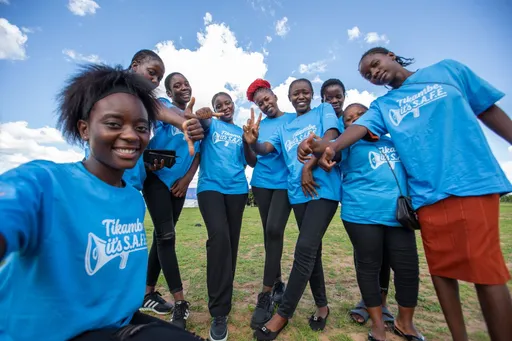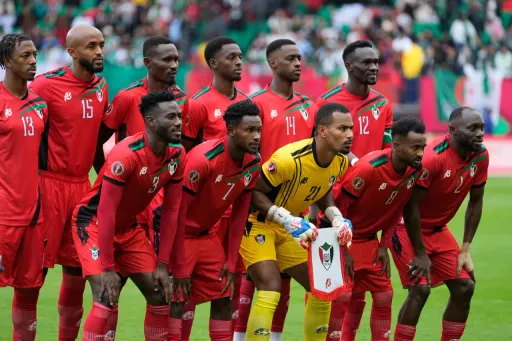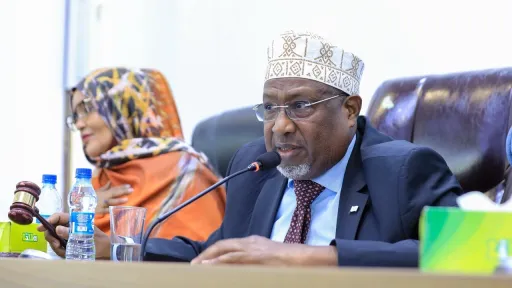In the dynamic landscape of international relations, Türkiye has emerged as a prominent player in 2023, adopting a multidirectional and proactive approach to international and regional affairs.
The nation, under the leadership of President Recep Tayyip Erdogan, navigated complex geopolitical challenges with strategic finesse and captured global attention.
Notably, Türkiye embarked on a path of normalisation, fostering improved relations with key regional players in 2023 such as Egypt, the United Arab Emirates (UAE) and Greece. This diplomatic outreach not only signalled a commitment to stability in the region but also demonstrated a nuanced understanding of the need for collaboration in the ever-evolving global arena.
Against this backdrop, Ankara has achieved diplomatic success in the resolution of the Karabakh conflict, contributing to regional peace and stability.
Furthermore, President Erdogan's efforts to secure the release of Thai hostages in Gaza underscored Türkiye's commitment to humanitarian diplomacy.
As we delve into the intricacies of Türkiye's diplomatic endeavours in 2023, it becomes evident that the nation has played a pivotal role in shaping the geopolitical narrative of the region.
Steps towards normalisation with Egypt
On March 18, after a 10-year hiatus, a Turkish foreign minister visited Egypt, with intentions to "elevate diplomatic relations to the highest level".
During Egyptian Foreign Minister Sameh Shoukry’s visit, soon after, on April 13, the former foreign minister Mevlut Cavusoglu hoped to open a new chapter in Türkiye-Egypt relations with joint projects and success stories.
Following Cavusoglu’s visit to Cairo, the two countries decided to raise diplomatic representations. Türkiye appointed Ambassador Salih Mutlu Sen as Ambassador to Cairo and Egypt appointed Amr Elhamamy as the Ankara Ambassador.
Since 2013, diplomatic relations between Türkiye and Egypt had been maintained at the level of charges d'affaires.
Diplomatic success in Karabakh
On September 19, Azerbaijan launched an anti-terror operation in the Karabakh region against Armenian armed separatist groups to uphold the November 2020 trilateral peace agreement signed with Russia and Armenia following 44 days of clashes with Yerevan.
Turkish President Recep Tayyip Erdogan, in a joint news conference with Azerbaijani President Ilham Aliyev, declared, “It is a matter of pride that the operation was successfully completed in a short period of time, with utmost sensitivity to the rights of civilians.”
"As Türkiye, we stood by Azerbaijan in all processes. I strongly emphasised our support in my address to the UN General Assembly last week."
With Azerbaijan's latest victory, new windows of opportunity have opened for comprehensive normalisation in the region, Turkish President Erdogan said.
Relations between Azerbaijan and Armenia have been tense since 1991, when the Armenian military occupied Karabakh, a territory internationally recognised as part of Azerbaijan, and seven adjacent regions.
In the fall of 2020, Azerbaijan liberated several cities, villages and settlements from Armenian occupation in a 44 day long conflict, which ended in November with a Russia-brokered ceasefire.
Ankara provided consistent support for Azerbaijan’s recent moves in the region. In 2020, Türkiye was the first country to voice public support for the anti-terror operation. And in 2022, the Turkish and Azerbaijani militaries held over 20 joint military exercises.
Türkiye’s earlier engagement with Azerbaijan on the Karabakh question and other issues fostered its central role in the current situation. Turkish officials consistently issued warnings to Yerevan, cautioning against reigniting conflict in the region post the Second Karabakh War.
With control regained over Karabakh, Azerbaijan is set to reinforce its alliance with Türkiye and explore avenues for expanding regional connectivity initiatives. A key focus for Baku is the imminent opening of the Zangezur Corridor, establishing a direct land route with Türkiye. This e positions both nations as pivotal players in regional trade and transit.
Year of Aegean rapprochement
Marked by decades-long disputes, Turkish-Greek relations defied a fresh wave of tensions early this year, when twin earthquakes which shook Türkiye’s southern provinces brought the two countries closer together.
As the dawn on February 6 revealed the devastation wrought by the quakes, Greece was among the first nations to extend its condolences. It was also swift in sending humanitarian assistance, including research and rescue teams, as well as aid supplies.
This strong show of solidarity by the Greek government and its people was met with gratitude from the Turkish side, leading to the restoration of dialogue between the two NATO allies.
Building on the positive atmosphere in bilateral relations, Turkish President Recep Tayyip Erdogan and Greek Prime Minister Kyriakos Mitsotakis agreed to further strengthen ties when they met on July 12 on the sidelines of NATO Summit in the Lithuanian capital city Vilnius.
Affirming their common desire for a fresh start in bilateral ties, the two leaders announced that the fifth meeting of the Turkish-Greek High-Level Cooperation Council would be held in fall 2023 in Greece after a seven-year hiatus.
Only 15 days after a meeting between Turkish Foreign Minister Hakan Fidan and his Greek counterpart George Gerapetritis in the Turkish capital city of Ankara, Erdogan and Mitsotakis met again, this time in New York, on September 20.
Apart from the current state of bilateral relations and future prospects, the leaders also discussed issues of mutual concern, including climate crisis, irregular migration, regional and global issues.
During Erdogan’s visit, the two nations also signed the Athens Declaration on Friendly Relations and Good-Neighbourliness, which emphasised the need to continue efforts to improve ties for the benefit of both societies in an atmosphere of friendship and mutual trust.
Improved relations with UAE
Türkiye-UAE held their first Joint Economic and Trade Committee meeting in 2023.
The two countries signed a memorandum of understanding, seeking to boost cooperation in various areas such as construction, energy, tourism and transportation.
The First Term Joint Economic and Trade Committee meeting was held in Istanbul as the two countries hope to target a trade volume of $20B.
The meeting came after the two sidessigned several deals with an estimated value of over $50B in July on Turkish President Recep Tayyip Erdogan’s visit to Abu Dhabi.
Pointing to their brotherly ties, Turkish Trade Minister Omer Bolat said bilateral trade has already exceeded last year's levels in the first nine months of 2023, despite challenges in the global economy.
Erdogan's efforts for Thai hostages in Gaza
Turkish President Recep Tayyip Erdogan also played an active role in securing the release of Thai hostages held by Hamas in Gaza in 2023, according to Hamas and Turkish government sources.
In a statement, the Palestinian resistance group said they released several Thai hostages following efforts from President Erdogan.
"In response to the efforts of Turkish President Recep Tayyip Erdogan, the Islamic Resistance Movement Hamas has completed the release of Thai detainees inside Gaza," the statement read.
Separately, 14 Thai nationals, held hostage by Hamas in Gaza, were released through the efforts of Türkiye’s National Intelligence Organization (MIT), upon the instruction of President Erdogan.
Quadruple meeting on Syria
In April, the quadrilateral meeting in Moscow was held, involving deputy foreign ministers from Türkiye, Russia, the Syrian regime, and Iran.
Then-foreign minister Cavusoglu, in a joint press conference with Russian Foreign Minister Sergey Lavrov in Ankara, emphasised the importance of continuing dialogue following the meeting.
A joint statement issued highlighted substantive discussions on reviving interstate relations between Türkiye and Syria.
The participants reaffirmed their commitment to Syria's sovereignty, territorial integrity, and the fight against terrorism, emphasising the importance of increased international assistance for the voluntary, safe, and dignified return of Syrian refugees and post-conflict reconstruction.
Black Sea Grain Initiative
Türkiye engaged in intensive diplomatic efforts to eliminate the risk of a "food crisis" due to the Russia-Ukraine war by extending the Black Sea Grain Initiative.
Turkish President Recep Tayyip Erdogan announced on May 17 that the agreement had been extended for another two months, thanks to Ankara's efforts and contributions from Russia and Ukraine.


